Mail & Guardian reviewers look at offerings from across the continent and the rest of the world to help keep the chill at bay this winter.
Spha Bembe

The African Groove Experience (African Cream)
Siphamandla “Spha” Bembe has managed to resuscitate the old-school tunes of South African jazz that are reminiscent of talents such as Hugh Masekela. “Bra Hugh Masekela — you’re the greatest, this horn you gave me has a message for the world,” he says, talking about the flugelhorn that dominates the album. Bembe has collaborated with producer and friend Thapelo Khomo in this offering, which features Jam Shack. Bembe has also played in bands led by Blondie, Ringo and Tsepo Tshola. This former member of group Stimela has woven some great African grooves, with tracks such as Malokatana, Life without You and Mantompolo. This album is sure to bring a sense of nostalgia to lovers of jazz from yesteryear with the vibrant use of instruments such as the flute, saxophone and keyboard. — Vuvu Vena
Tree Houses on the Sea
The Return of the Book Thief (Independent)
If you want to know what the hottest thing in Durban is right now besides the weather, the answer is Tree Houses on the Sea, or T.H.O.T.S. The band recently walked away with the top prize at the Durex Ultimate Battle of the Bands and their debut album, The Return of the Book Thief, illustrates quite clearly why. Based on a book written by Marcus Zusack, called The Book Thief, in which a young girl living in Nazi Germany steals books that were meant to be burned and learns to read them, the album is a heady blend of hip-hop, soul, jazz and rock. Their sound is reminiscent of the soulful jazzy hip-hop of Arrested Development, but with some harder, edgier rock guitar thrown into the mix, à la Rage Against the Machine. Front man Raheem is an impressive emcee, fluctuating between spitting rhymes and delivering delicate vocal performances — and the band can shift from hip-hop to free jazz at the drop of a hat. Highlights include Gravedigger’s Handbook, Old Intro and Musico. So keep your eyes peeled for a T.H.O.T.S. gig near you as they get set to head out on their first national tour. — Lloyd Gedye
Various Artists

Jozi (Next Music)
Film soundtracks are usually hard work. There are few that translate into great stand-alone albums. Often the most successful ones are produced as a whole by an artist or composer — think Air’s work on the Virgin Suicides soundtrack or Nick Cave and Warren Ellis’s soundtrack for The Proposition. The other type of soundtrack is the collection of hot new bands on one album and this is the formula that the Jozi soundtrack goes for. You get popular indie bands such as Howard Roark, Desmond and the Tutus, Black Hotels and aKING, Afro-soul outfit UJU, Afro-pop outfit Gang of Instrumentals, smooth soul star MXO and hip-hop head HHP all rubbing shoulders on one album. As a snapshot of the South African music industry’s bright young things, it’s a compilation that will introduce quite a few listeners to what’s happening in the local music scene. But for the knowledgeable gig-goer there’s not much here to surprise. — Lloyd Gedye
Kimi DjabatÉ
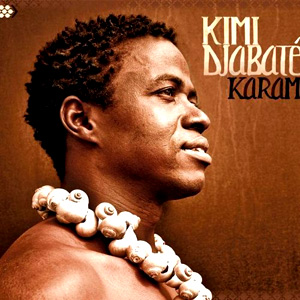
Karam (Cumbancha Discovery)
Born in Guinea-Bissau to parents of Malian heritage, music came naturally to a Kimi Djabaté, a griot from birth. He has been playing the balafon (the African xylophone) since the age of three and has added guitar and percussion to his repertoire too. Karam, his second solo album, is the first from record label Cumbancha’s new Discovery range, which will focus on introducing the world to new talent. It follows his 2005 album Terike, which he released independently. Djabaté has opened himself to various music styles and Karam is definitely a fusion album, an organic blend of African musical styles such as mandingo, gumbe, Afrobeat and mona, with elements of Western jazz and blues thrown into the mix. His lyrics deal with the social and political realities of the African continent, both positive and negative. Djombe deals with racial tolerance, while Mogula talks about social inequality and the importance of Africa becoming economically independent. It’s not going to change your life, but Djabaté’s new album is a refreshing new sound in a music industry full of mediocre products. — Lloyd Gedye
International CD reviews
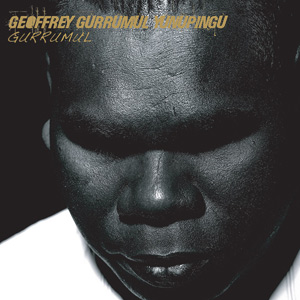
Geoffrey Gurrumul Yunupingu
Gurrumul (Just Music)
Award-winning aboriginal musician Geoffrey Gurrumul Yunupingu has taken the Australian music industry by storm and now he has his sights set on the rest of the world.
The former Yothu Yindi band member’s debut solo album, Gurrumul, is a beautiful world-music album, with Yunupingu’s voice the star attraction throughout. Without a doubt this will be one of the most incredible albums you will hear in 2010, gorgeous acoustic-driven songs with some of the greatest harmonies ever recorded. The closest comparison I can make is to say that Yunupingu’s songs have a similar transcendental beauty to the work of South Africa’s Vusi Mahlasela and he has a voice every bit the equal. This is not background music — it will stop you in your tracks and make you sit down and pay attention. The opening song, Wiyathul, absolutely floored me the first time I put the record on and it still does many listens later. The standout track Gurrumul History (I was born blind) sees Yunupingu dealing with his blindness in song and is one of the few tracks that sees him break away from his Yolngu native tongue. Absolutely essential. — Lloyd Gedye
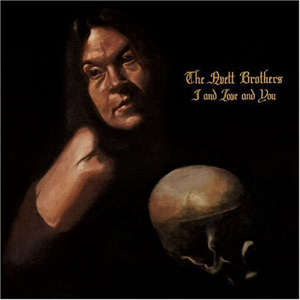
The Avett Brothers
I and Love and You (Sony)
Nine years and 13 releases later the Avett Brothers bring us I and Love and You as they continue to mine the fertile seam of the difficulties of relationships, love and loss. The song from which the title is taken is a love song in which they speak of the difficulty of uttering the words “I” and “love” and “you”, and a refrain with a plea to “Brooklyn, Brooklyn take me in / are you aware the shape I’m in?” It’s probably the core of the album and there’s a long meditation on the nature of love in the liner notes. They say the three words are the watermark of humanity and that they convey humanity’s deepest humility — words of power and of truth. January Wedding is a tale of simple loving as a young couple look forward to their wedding and Kick Drum Heart is probably best heard really loud and preferably live. Sure, it’s sentimental, but sentimental in a good way, like Neil Young, and for those of us who miss the “feeling of feeling”. The brothers are in fine form and although there’s nothing exactly new here, fans of their distinctive brand of country folk will find plenty to celebrate. — Matthew Burbidge

Broken Bells
Broken Bells (Sony)
Broken Bells is a collaboration between hip-hop and electronic producer Brian Burton, aka Danger Mouse, and the Shins’s James Mercer. Although it leans more towards music that Shins fans will be partial to, they stray from the epitomical indie that Natalie Portman promised would “change your life”. There is more thoughtfulness in the production on this album, but Mercer keeps going back to the comfort zone of the Shins’ sound, which is kind of sad, as the band broke up in 2008 and much of this album is about the end of something good. Mercer gets some play with his falsetto on The Ghost Inside and some 1980s glam-charm on Mongrel Heart. Burton, who forms half of Gnarls Barkley, keeps a low profile on this album, but his input does seep through in synthesised melodies and almost techno beats every now and then, just as I started to forget that this was not a Shins album. The High Road and October are memorable tracks, but only after a few listens. Broken Bells’s debut is by a duo both great in their own right, but who need to find a comfortable identity to meet their potential and to show that they can, in fact, create a groundbreaking sound. — Ilham Rawoot
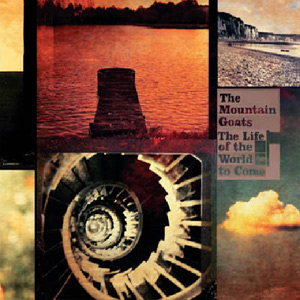
Mountain Goats
The Life of the World to Come (Just Music)
John Darnielle, the driving force of the Mountain Goats, has been called “America’s greatest songwriter currently working”. Although I’d give that meretricious accolade to Jim White, Darnielle is undeniably a fabulous songwriter. The Mountain Goats have been around since 1991, in various incarnations. Oddly, fluid line-ups used to be a sign of fragmentation in a band — now reinvention is a sign of coherent artistic growth. And this growth is evidenced by the Mountain Goats’ shift from a lo-fi, boombox output to the polished, pellucid, paradoxical rawness of The Life of the World to Come. The songs are all named after biblical verses, except for the closing Ezekiel 7 and the Permanent Efficacy of Grace. According to Darnielle, “the songs are 12 hard lessons the Bible taught me”. So the lesson of Romans 10:9, for example, seems to be: “If you will believe in your heart / and confess with your lips / surely you will be saved one day.” The Mountain Goats’ clean guitar sound, underpinned by solid, restrained drumming and embellished with piano and strings, provides the perfect pulpit for Darnielle to deliver his inspired, poetic, trenchant lyrics. There’s much beauty here and much pain.– Chris Roper
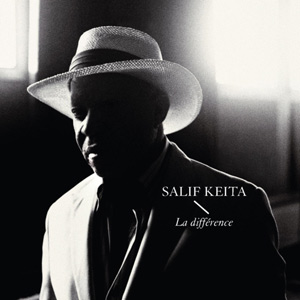
Salif Keita
La Differénce(Universal)
This is one smooth album. ‘Classy” is a way I have seen some people describe it and yes, indeed, it oozes sophistication. But there is something else here at play besides the Malian music veteran showing his chops.
On La Différence Keita’s vocal work is superb, with a soulful richness in a way that a great such as Nina Simone exuded. Recorded between Bomako, Beirut, Paris and Los Angeles, it is a testament to Keita’s production team that the album sounds so consistent. Guest artists include guitar legend Bill Frissell on the delicate Folon and Lebanese trumpeter Ibrahim Maalouf on the album highlight Saminga. The fact that La Différence has already won Keita one of the biggest musical awards of his career — Best World Music 2010 at the Victoires de la Musique — should just be the icing on the cake that convinces you to pick up this gem of an album. — Lloyd Gedye